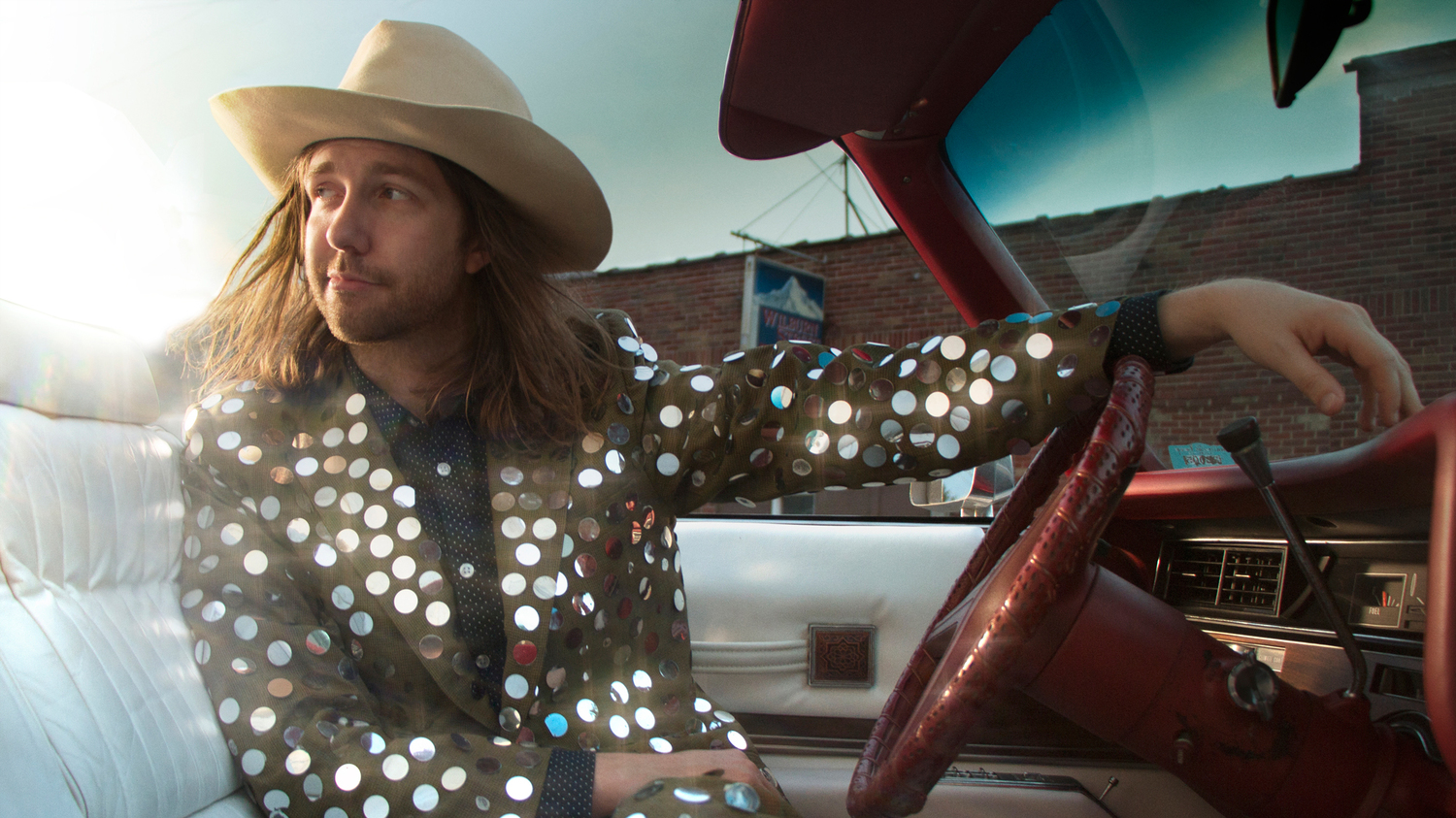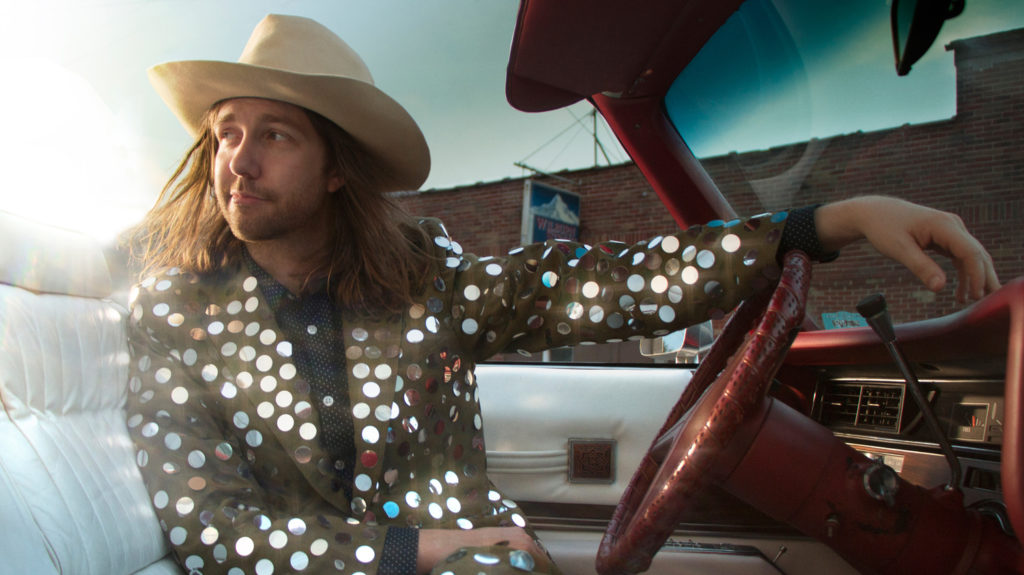Catching Up With : Aaron Lee Tasjan
Aaron Lee Tasjan’s album Silver Tears is one of our favorites of 2016. We reviewed it a couple of weeks ago and got to chat with ALT for a few minutes this week. He’s playing at Great Scott on Thursday night, opening for Lydia Loveless.
RLR: Silver Tears has, for lack of a better word, a “bigger” sound than In the Blazes and Telling Stories to the Wall. I’m wondering if you can think back to the genesis of the songs on Silver Tears and if they always sounded this big in your head or if some of that came out in the studio and development with other folks.
ALT: It totally sounded that way, even when I first wrote them. I demoed them right away, particularly “Little Movies,” “Ready to Die,” “Where The Road Begins and Ends,” and “Dime.” I made a drum set out of tambourines and, I don’t have a bass, so I used a piano for the bass parts. I dreamed up these full band versions right then. And I knew I wanted a lot more singing, mostly because I like that style–you know, Beatles, or Harry Nilsson, with layers of harmony.
RLR: “Little Movies,” and “On Your Side,” and “Success,” all feel like songs that poke at artifice and you recently said, “everyone’s wearing a costume.” Can you talk more about that and how you see it play out as a musician?
ALT: Music to me has always been, you know, a thing you do to feel a part of something, not something you do to separate yourself. So the idea that somebody just listens to one genre is crazy to me. It’s not about defining yourself by a music choice or fashion aesthetic. You’re trying to create a space for people to just be in, that doesn’t require anything of them except to exist and feel however they feel about it. Everybody has a costume because it shows that everyone tries to draw these lines to separate themselves, and maybe that’s the thing we all have in common.
RLR: I imagine that’s a challenge when folks are trying to define what you do, or who you are, in order to think about how to market your work.
ALT: It definitely is. Some people feel the need to define who the audience is, so we know who to sell to. And, maybe that’s true, but not if we’re doing it right. Music goes beyond that. It’s in the person who wrote the song, the players in the band, and the audience in the room – it’s in all these places simultaneously. It’s a colorful spectrum, so it’s not that easy to put in a box and say “here’s what this is.”
The function of art I don’t think is necessarily tied to accessibility. The accessibility of it in really more up to the listener than the artist. I really subscribe to what David Bowie said: “don’t just play to the gallery.” The goal in making music should be to do something that will give people a different perspective. That’s an intriguing goal as an artist, because it stimulates the audience and the artist.
RLR: You open “On Your Side” with the line “I sing jokes, and call them songs / Nobody knows where they belong.” So there’s that question of “fit” again. What do you think holds more people back from using humor in songs – that it’s not seen as serious or that it’s in some ways harder to do?
ALT: Everybody’s experiences cause them to relate to pain differently. People who come from a certain walk of life aren’t going to be able to laugh at everything, so it is a tricky line. And you are somewhat defining your audience when you use that part of your voice.
I take a very intuitive approach — I like to do what feels good, and that’s dangerous because I don’t always know if it is good. But a little bit of danger is an essential element of rock n’ roll.
RLR: You’ve been touring a lot with Brian Wright and it seems like you two have a pretty deep understanding of each other’s work. Can you talk about how connected and what you’ve learned from that collaboration?
ALT: The first time I heard one of his songs, Zach Schmidt sang it for me and it just blew me out of my chair. And I thought whoever made that song, I need to hang out with them as much as I can. I think I met him at the Five Spot and then we’d sit in on each other’s gigs on occasion in Nashville, dreaming up, like you do with your friend in the shed, what if we had a band?
So this tour is the current version of what we’re working on but there have been many twists and turns – different singers we’re backing up, and I’ll play in Brian’s band. He’s building a studio in the back of his house, so we’re going to record there and explore some possibilities. It’s all about making friends — you find people who possess a quality that puts a hold on you and it keeps you feeling engaged and inspired.
RLR: Speaking of inspiration, in 12 Bar Blues, you mention Philip Levine. What kind of influence has he, and maybe other poets, had on you as a songwriter?
ALT: When I was in the eighth grade, I’d been in this Christian school, St. Margaret’s Episcopal. It was in Orange County, so socioeconomically, it was pretty one-sided. And it was not my scene. I got into this high school called Idyllwild Arts Academy. And they didn’t have guitar majors, but I could do the fingerpicking thing enough to be a classical guitar major.
The school was having this big discussion on censorship and Philip Levine came to the school and gave a talk. And he said two things about censorship. The first was when he was the US Poet Laureate, he was asked to the White House and he said he would go one the condition that he could read this one poem; and the reason he wanted to read that poem is because it had “motherfucker” in it and he wanted to see the look on people’s faces.
But the other thing he said is that there is only one thing that makes him wish for censorship, and that is when someone puts his poems to music, because it’s always awful. I bought a bunch of books, and got one signed for my mom. She loved poetry and introduced me to writers like ee cummings. That’s how I got into Philip Levine.
Poems just seem like a really abstract approach to writing, and that’s what I liked about lyrics – it’s more of this picture, and there’s room to see it in your mind and visualize.
RLR: Fill in the blank – I used to think _____, now I think _____.
ALT: I used to think “fast” … and now I think “tacos.”


